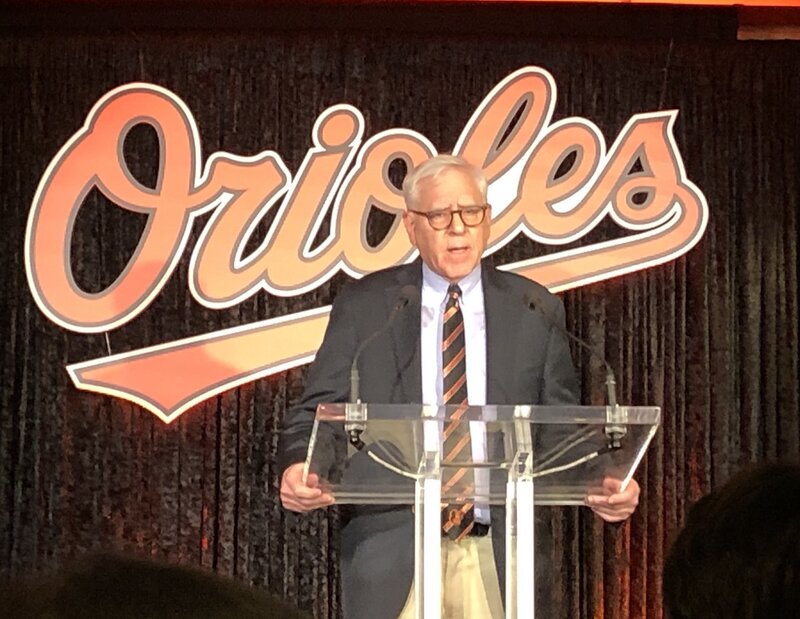Dilfer, with relief help from Tony Banks and the legs of Jamal Lewis in the backfield, racked up 461 yards of total offense in a 44-7 rout. Many of the Ravens’ drives weren’t even that impressive, holding the ball for no more than 6:24 at any point.
The Browns, quite simply, scored one touchdown and quit playing.
At 9-4, the Ravens were entering the rarefied air of becoming a bona fide playoff contender. It would be a long break between games, with a much-needed bye week coming on the heels of the Browns’ rout.
Prior to the Cowboys’ game, Billick issued an organization-wide ban on the use of the word “playoff.” Anyone using the word in the clubhouse to the media or in the presence of other players would be fined.
He felt the Ravens – an organization that entered the season with a 24-39-1 record and had never played a meaningful game after Halloween, let alone Thanksgiving – shouldn’t be worried or speaking about what they had no knowledge of.
When the word of Billick’s ban of the “P” word hit the team’s downtown offices, they didn’t know whether to take him seriously or not. There were postseason ticket applications that needed to be sent out, but what was there to say if you couldn’t say “playoff.”
But in keeping with the spirit of togetherness, Patti Holtery, a member of the human resources department, recommended that the team use the word “Festivus” in lieu of the “P” word.
The vague term “Festivus” was a mythical substitute for the holiday season used by the wacky and dysfunctional Costanza family from the NBC sitcom Seinfeld several years earlier. It was non-denominational. It was celebratory.
To Baltimoreans, it sounded like playoff football.
The word caught on all around Baltimore, and starting left guard Edwin Mulitalo used his celebrity to create “Festivus” T-shirts, which were autographed by the gregarious big guy and available all over town.

The only one to break the ban – and organization odds had him listed as even money to be the first offender – was mouthy defensive tackle Tony Siragusa, who had used worse words on his radio show for nearly four years. On his radio show that week from The Barn – great minds think alike – he said it again and again and again on a dare. He also repeated the words on national television for CBS’ pre-game show.
Billick fined Siragusa $500 in jest.
“That’s $400 for the television incident,” Billick said, “and only $100 for the radio show because no one listens to his radio show.”

The Ravens had a “Festivus” feast waiting for them that weekend. They would be hosting the lowly San Diego Chargers, by far the worst team in the NFL, with a record of 1-12. Sporting the biggest draft bust in NFL history at quarterback, Ryan Leaf – the guy that the Ravens could take some serious responsibility for putting into a Charger uniform to begin with – the visitors were mere window dressing for what would be the city’s biggest football celebration in more than two decades. It had been nearly 23 years since Bert Jones and the Baltimore Colts fought their way into the playoffs with a win over the New England Patriots on Dec. 18, 1977, a frigid day at Memorial Stadium.
It was also one last chance for the 2000 Ravens defense to match the Steel Curtain’s 1976 record in 14 games.
The Ravens held a 10-0 advantage nearing the two-minute warning against the Chargers and appeared to be on track to get that historic shutout. But in the waning moments of the first half, the Ravens’ defense allowed the Chargers to move just 14 yards on seven plays, enough to take them from the 44 to the 30 and into field goal range. It would be enough for Chargers kicker John Carney to boot a 47-yarder with 48 seconds left in the half, spoiling the shutout.
The Ravens dominated the Chargers all day in a 24-3 win that would send the organization and the city into the playoffs for the first time in a generation.
But the sour taste of losing the shutout still didn’t sit well with the proud defense.
“When they kicked that field goal, our bench was like, ‘We lost the game,’” said defensive end Rob Burnett. “When we came and sat down after that I was looking at guys on the bench. I know myself. I was disappointed. We were all disappointed. When they kicked that field goal it was almost like the world came to an end. That’s how we press ourselves and put pressure on ourselves to go out and be excellent every week.”

More than just going to the playoffs that day, the Ravens proved yet again that they could run the football on anyone.
The Chargers, despite their woeful record, did one thing very well. Much like the Ravens’ defense, they stopped virtually everyone from running on them.
“We showed we had a physical nature in that game and that would prove important for us later against Denver and Oakland,” Billick said. “San Diego with Junior Seau in there, was going to stop the run against most teams. And we still ran the ball pretty well on them.”






























